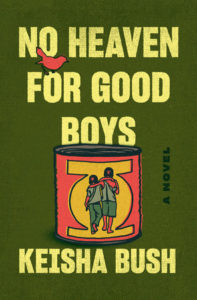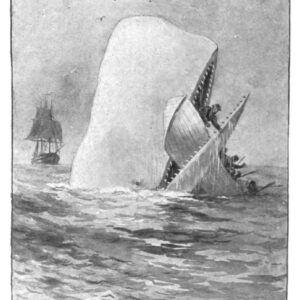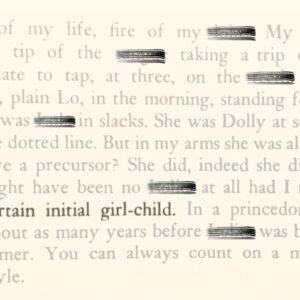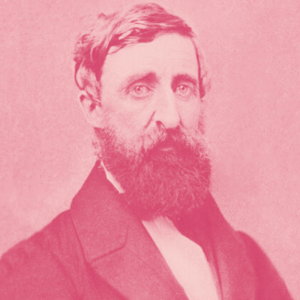
Keisha vs. Kate: On Discarding and Reclaiming a Name
"Everybody needs a Keisha in their life.”
Many people have a story behind their names. I was born Naomi Bush. I’ve heard this story a million times, plus some. My mother was just 19 years old when she had me, eight months after she was forced to marry my father, who was also 19 years old. My mother loved the name Naomi, which also happened to be my paternal grandmother’s name.
Except my other grandmother had a fit.
“You gonna name her after dat woman!” she vehemently spat in her thick Honduran accent. I was just three days old, but I can imagine my grandmother clear as day, saying this.
“Name her after me! Mavis! I’m your mudda,” she demanded. (Mavis, as it turns out, is an old French name—but how my grandmother came to take it, no one knows, because her given name was Emma.)
My mother, hating her mother and tortured by the demands over my name, requested the birth certificate back from the hospital administrators and tore it up. She named me Keisha, a name that she was later accused of “stealing” from a pregnant neighbor, gave me her name—Lunita—as my middle name, and called it a day. And so, in a flurry of high tempers, hurt feelings, and vengeance, I went from Naomi Bush to Keisha Lunita Bush.
*
Keisha, and its various spellings, was a name synonymous with the black American hood. Kisha. Keesha. Kyeshia. Takisha. Nakisha. Mokeesha. Lakisha. Akisha. Makisha. At one point in my life, I knew about 12 other Keishas. I once became friends with a woman named Keisha because her father called out her name in my apartment building lobby and I answered him. I have a cousin named Kisha. My neighbor across the street, the one who was pregnant when I was born, named her daughter Lakisha.
Fast forward to adulthood, when I found myself in a lily-white academic institution: I was the only Keisha on my college campus (at least as far as I knew). I once went home for Thanksgiving break with my best friend at the time, who is Chinese; in an email prior to the trip, her dad asked if I was Japanese.
As I went on to graduate school and entered the corporate world, where I was never among other Keishas, white colleagues and friends would tell my name was unique and pretty. I would tell them how common it was within the black community. “You’re the first Keisha I ever met,” they would often respond.
White writers whose first books don’t sell well get second chances. Black authors don’t.
Then, in late 2009, well into the Great Recession, I found myself out of work. (“The problem with Keisha is she’s just not one of us,” my boss remarked before I left.) Unemployed but confident, I networked and volunteered, consulted for nominal fees, and sent out hundreds of resumes. But in three years, I never landed a single job interview or call back, leaving me at my wits’ end.
One evening, I was watching the documentary Freakonomics on Netflix and was struck by its questioning of whether a name determined the hardship or success of a person’s life. The documentary noted the high level of unemployment among black people as opposed to whites—roughly double the rate, according to a 2012 Department of Labor report—and described an MIT study that revealed that resumes with a black name receive a call back 50 percent less often than their white counterparts.
Was it really all in a name? I decided to test out the theory out and chose Kate: short for Catherine, Caitlin, Kathy, and now, Keisha.
I pictured Kate three inches taller than my five feet and five inches, with long dirty blond hair pulled back into a ponytail. She shopped at J.Crew, like Keisha, but her style was a bit more conservative. She was engaged and wore heels. Keisha, meanwhile, was single and wore flats; towering above my white colleagues or even seeing them eye to eye was not a recipe for success.
Kate got a new Gmail account and uploaded her resume to the online job boards. The next day, she called the temp agency that had previously ignored Keisha. My mother disliked the whole thing, insisting that if people were too racist to call a black woman for a job interview, once black Kate showed up, I wouldn’t get the job anyway. Despite her doubts, within two months, I had been invited to interview for a six-figure senior position with a nonprofit located in Union Square and was fielding two to three inquiries a week from recruiters. After my third round of interviews, I wasn’t offered the position. Deflated, I moped around for a few days but soon got back to work. Kate was much further along than Keisha had ever gotten in the prior three years of searching for a job.
When it was time to put my name on my debut novel, I hesitated.
Three months after I didn’t get the six-figure job, I landed an interview with a nonprofit in Brooklyn for a short-term consultancy. When I introduced myself, the HR Director, a pleasant, older white woman, didn’t blink twice at the salary I requested, and I reported to work the next week.
Shortly afterward, I decided to go to graduate school and pursue my passion for writing. What I did not expect to follow me over the next eight years was the deep insecurity of revealing my race via my name. After posing as Kate, I was left feeling as if the only way to really make it in America was to hide my race.
So, when it was time to put my name on my debut novel, I hesitated, afraid that people would think less of the story because it was written by a black American woman. I’d dreamed of my name gracing the cover of my books one day, just like Toni, Maya, Jamaica, Junot, and Zora. But I had grown doubtful—and as a new author, the stakes are real. White writers whose first books don’t sell well get second chances. Black authors don’t.
But ultimately, a conversation with my editors reminded of a time when I was extremely proud to don my name. It was during time while I was still living in Senegal when, after meeting a few American sailors on shore leave, in downtown Dakar, one of them remarked that just hearing my name made his day.
“We’re a dime a dozen,” I laughed, rolling my eyes.
“My closest homegirl back home is named Keisha,” he responded. “Look, Keisha’s have got your back no matter what. Everybody needs a Keisha in their life.”
I had never looked at it that way, and it made me happy that I could offer members of our military a sense of home, so many miles away.
When the first copies of my novel arrived in the mail, I felt a mixture of apprehension and pleasant surprise. I’d dreamt of this day, but I never thought about what it would mean to see my name on the cover—for me, and for every other Keisha out there. For the multiplicity of Keishas in me, and out in the world, I add our humble name to this long literary tradition.
__________________________________

No Heaven for Good Boys by Keisha Bush is available now via Random House.
Keisha Bush
Keisha Bush was born and raised in Boston, Massachusetts. She received her MFA in creative writing from The New School, where she was a Riggio Honors Teaching Fellow and recipient of an NSPE Dean’s Scholarship. After a career in corporate finance and international development that brought her to live in Dakar, Senegal, she decided to focus full-time on her writing. She lives in East Harlem.



















